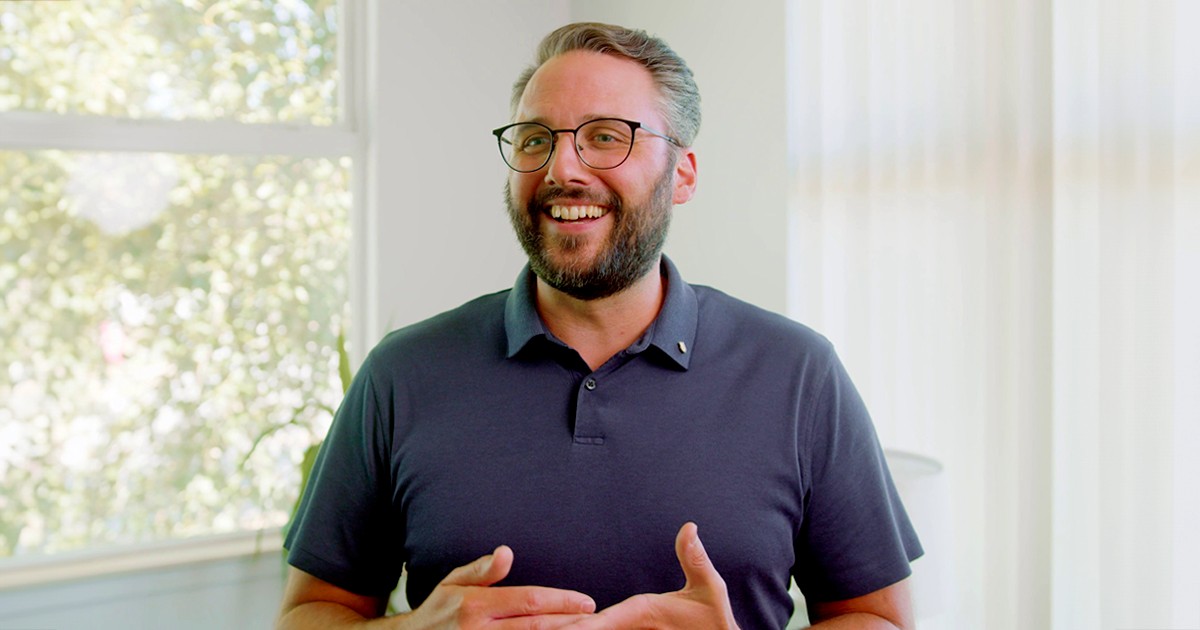Justin Napier is the executive director of the Gateway of Hope in Langley, B.C., and teaches courses on chaplaincy as an adjunct instructor at Winnipeg’s Booth University College.
Tell us a little about your family and early years.
I was born and raised in Langley, B.C., and have three siblings: two older brothers and one younger sister. For my first 13 years, we lived on an acreage where I could play outside all day, which gave me an early appreciation for the outdoors.
My dad owned and operated an antique store for more than 50 years, and my mom spent most of her time taking care of us. They demonstrated the value of a strong work ethic and the importance of always extending a helping hand to others and, when possible, to err on the side of generosity.
Even as a child I tried to live up to my name. The name “Justin” derives from “justice,” and at an early age I was taught that part of justice involved making and keeping peace. I hated the feeling of not being “right” with someone, so I would try to make peace instead of holding grudges, and this still rings true for me as an adult.
Who has been influential in your spiritual journey?
I was raised in the Christian tradition, but I didn’t get serious about my faith until my early 20s, when I realized that the life I was living was not the life I wanted. I knew something had to change, and that the change involved getting right with God.
Although several people were influential, I’d like to mention three key figures. The first is a friend who passed away from cancer at the age of 15. I remember seeing him plan his memorial service because he knew the end was near. It moved me to see someone so young and so prepared for his own death. He understood something I didn’t at that age, which was that death wasn’t the end of the journey. It was simply the path we all must take. I think Gandalf said something like that, too, in the movie version of The Return of the King.
Another significant person was Doug Smith, a pastor at a church I briefly attended, who continued to stay in touch. He took the time and care to listen to me and allowed me to figure things out, and I always knew he would be there in my time of need. As a young adult, having a mentor to whom I could look for guidance was essential for my spiritual growth.
Finally, the work of C.S. Lewis made a strong impact on me. He had a way of simplifying deep truths through imagination. Lewis challenged me to use metaphor to convey truth, because if I couldn’t convey my faith through the imagination, I probably didn’t understand it in the first place.
What spiritual discipline has helped you grow?
Silence. In an age dominated by distraction and noise, silence is challenging, but it is probably one of the most important practices of our time for spiritual growth.
Can you tell us about a difficult time in your life, and how God met you?
I can’t say that I’ve struggled with doubt in terms of God’s existence, but I have wrestled with doubting whether God will show up in the ways that I want him to. The experience of losing my friend at an early age was pivotal in asking questions about God’s care over the world early on in my life. Doubt isn’t an inherently bad thing because it can be understood as an honest conversation with God, which is what we see continually in the Psalms.
At times, God has felt silent. But I have learned that silence doesn’t necessarily mean an absence of presence, and I have come to believe that God is present in the silence.
My faith has also been deepened by talking with people from different walks of life. It’s easy to stay within your own tribe, but when you make the effort to talk with people who would normally be seen as “outside” of your community, you start to realize that life is pretty complicated and it makes you appreciate that truth, goodness and beauty can be found in even the strangest of places.
What’s the last book or movie that helped deepen your understanding of grace?
I recently read a book by Nick Cave called Faith, Hope and Carnage. Nick Cave is a musician and artist who recently lost his son through a tragic accident. The book is part autobiography and part memoir, and he touches on topics around grief, beauty, love and much more in profound and intimate conversations with journalist Seán O’Hagan. It was a fantastic read, and I highly recommend it. Even if you are not familiar with Cave’s work, he will undoubtedly leave an impression. In terms of a film, I recommend The Tree of Life by Terrence Malick. It resonates with my understanding of grace.
What would you like to be known for?
What a massive question! I’m still trying to figure out who I am in Christ every single day. I suppose one thing I try to do is live the middle way, what has been called via media in the Christian tradition. I believe that our engagement in this world must be real, must be true and must be good, and all of this is contingent upon our life in Christ. I hope, in some small measure, that I would be known by those who love me as someone who tried to live within the tension of mystery and reality and who was a gracious guide to others along the journey.










Love reading your reflections Justin - grateful for the team you are leading in our community of Langley!